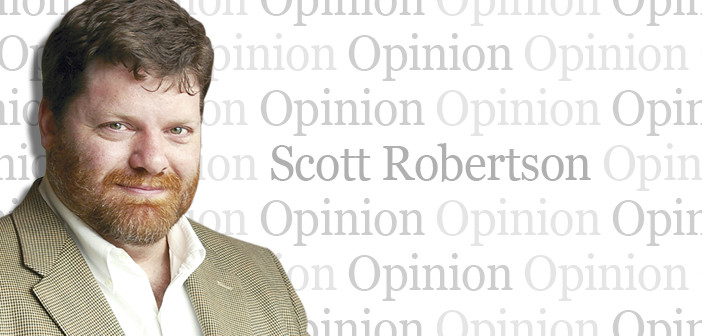By Scott Robertson
“I was hired to do a job for you, and it was just a temp job at that.” – President Dave Kovic, “Dave”
The act of voting is, first and foremost, a hiring decision. Most of us believe the ballot asks, “Who do you want to do this job?” And whether that job is dogcatcher, mayor or President of the United States, we each answer in a voting booth where we stand alone with our thoughts and our emotions.
Standing at the polls is a unique moment. Because we are truly alone, we can put aside whatever pressures are laid upon us by our friends, our family, and these days, our facebook feed. We can be truly honest in answering that question. “Who,” we generally ask ourselves, “do I want to do this job?”
I’ve been part of several private sector hiring processes over the years. Some have turned out well, with the right person stepping into the right job and becoming an overnight success. Others have ended badly. The worst have come when I allowed my emotions to cloud my rational understanding of either the position or the candidates.
The easiest emotional trap in a hiring decision is to look at the person being replaced and say, “I know this guy’s faults, and I want to hire the exact opposite kind of person so I don’t have to deal with those faults anymore.” When you do that, you minimalize whatever new faults this “opposite candidate” may bring. It’s such an easy trap to fall into.
Case in point: The University of Tennessee football program, which had won the national championship in 1998, was falling flat a decade later. In 2005, the team had a losing record, and in 2008, another losing season was guaranteed, so the university told head coach Phillip Fulmer his services would no longer be required.
The criticisms of Fulmer were harsh. His offense was stale and unimaginative. The coach, fans were told, had lost the locker room. Young players did not relate to Fulmer anymore. Tennessee decided it needed someone who was just the opposite of Phillip Fulmer.
Remember who the university hired? Lane Kiffin.
Fortunately, Kiffin’s offense was fresh and imaginative. Unfortunately, Kiffin was freshly and imaginatively offensive.
Kiffin related to his players and his players related to him. Right up to the point where he abandoned them.
The university thought it wanted the opposite of what it had. But a couple of rough patches with Fulmer had blinded the decision-makers to the strengths it was abandoning in that pursuit. Loyalty, dedication, honor.
The decision-makers thought they were answering the question, “Who do I want to do this job?” The real question was, “Who is the best person to do this job?”
Every emotion in 2008 pointed to Lane Kiffin being the right hire. But in retrospect, the warning signs that he would flame out were all there for a rational decision-maker to see. Tennessee went with what it felt like it wanted instead of finding (or keeping) the man who would actually be the best person for the job.
I would humbly ask that when you step into the voting booth this year, you ask yourself what the position you’re hiring for requires, and what candidate will best do that job. Voting is important work. Just agreeing with the candidate on positions doesn’t mean you’ll make the right hire. Most Tennessee fans at the time felt Lane Kiffin was a good hire. He was an energizing force. He jabbed our rivals with verbal pointed sticks and made us feel glad he was on our side. Right up until he wasn’t.
Human resources professionals tell us leaders need problem-solving skills, critical thinking skills, negotiation skills, service orientation, good judgment and integrity. Successful businesses hire leaders with those skills, and they profit from it. If we, as voters, believe government should be run like a business, shouldn’t we hold ourselves to the same standard in who we decide to hire?




